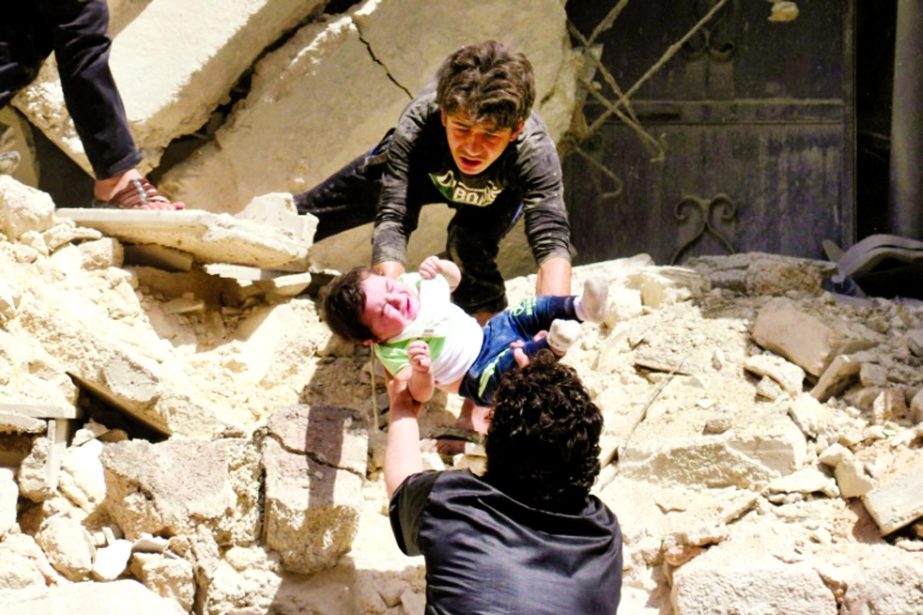
Al Jazeera News :The Syrian government has carried out more than a dozen fresh air strikes in Aleppo as the death toll from more than a week of escalating violence continues to soar, according to local sources. The strikes hit residential neighbourhoods across the opposition-controlled eastern part of the city on Saturday morning, though no immediate information about the number of deaths and injuries was available. “As I’m talking to you, we can hear air strikes,” Zouhir Al Shimale, a local journalist, told Al Jazeera by telephone, adding that Saturday morning’s strikes hit the areas of Bustan al-Qasr, Zobdia, Ansare, Jazmate and Kalasa. The UK-based Syrian Observatory for Human Rights estimates that at least 244 civilians, including 43 children and 27 women, were killed since violence between government forces and rebel groups flared on April 22. On Friday night, government forces carried out air strikes in the eastern part of the city, while rebels fired mortars into residential areas into the western, government-controlled side.On Thursday and Friday alone, at least 44 civilians died in the tit-for-tat attacks, the Syrian Observatory said. While the Syrian government on Friday announced temporary truces in Damascus and the coastal city of Latakia, a support base for President Bashar al-Assad, Aleppo has been excluded from any cessation of hostilities. Sharif Nashashibi, a London-based analyst of Middle Eastern politics, explained that Aleppo is a key city in the ongoing conflict in Syria.”Aleppo is the biggest city, it’s an economic hub, it’s close to the border with Turkey – there are a range of symbolic and practical reasons why it’s so important,” he told Al Jazeera, adding that neither side has been able to fully control since the conflict’s outset. “With the support it’s receiving from Iran, Hezbollah and particularly Russia, the regime feels that it is now able to do that,” Nashashibi added. “The issue beyond that is the regime’s inability to keep territory. Since Russia’s intervention and before, the regime has been unable to keep hold of territory it has recaptured without help from foreign forces.” Locals and rescue workers have struggled to evacuate civilians from the sites of air Shimale described the streets as empty as most people stay indoors. “People are doing nothing other than hiding in their homes,” he said. “They rush in the morning to buy food and get home as quickly as possible so they aren’t outside when the strikes start. There has been a lot of damage to buildings and cars.” While some residents have packed their bags and fled, most have not because “the main streets out of Aleppo have been targeted and shelled heavily”, he said. Several medical facilities have been destroyed in opposition-controlled districts. Among those was the al-Quds hospital, where more than 50 people were killed when government air strikes hit the hospital and the nearby Sukkari neighbourhood earlier this week. The al-Quds hospital was supported by Doctors Without Borders (MSF), which announced that at least 14 staff and patients were killed in that attack.

